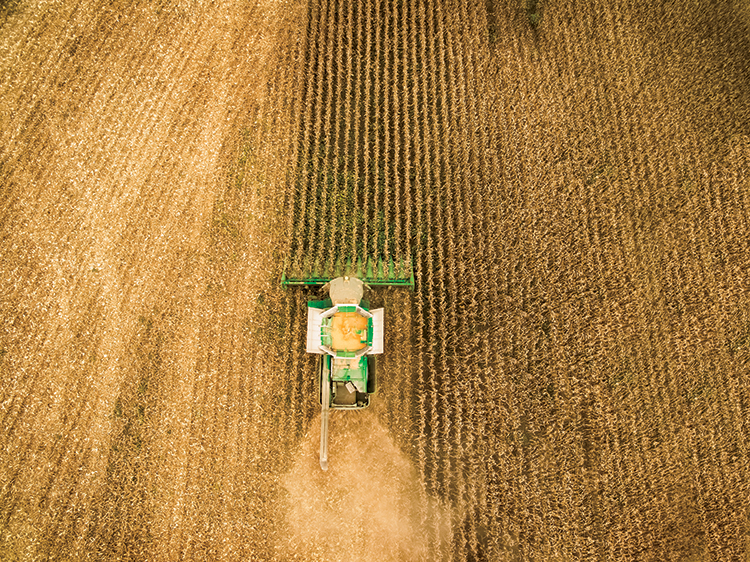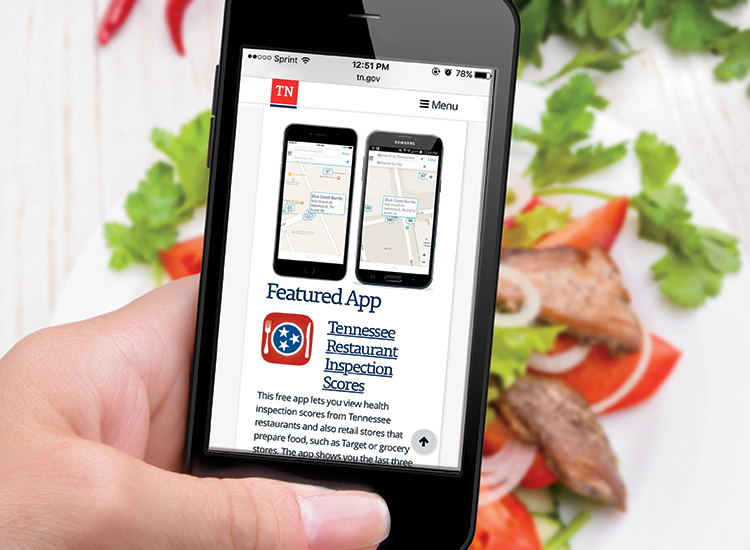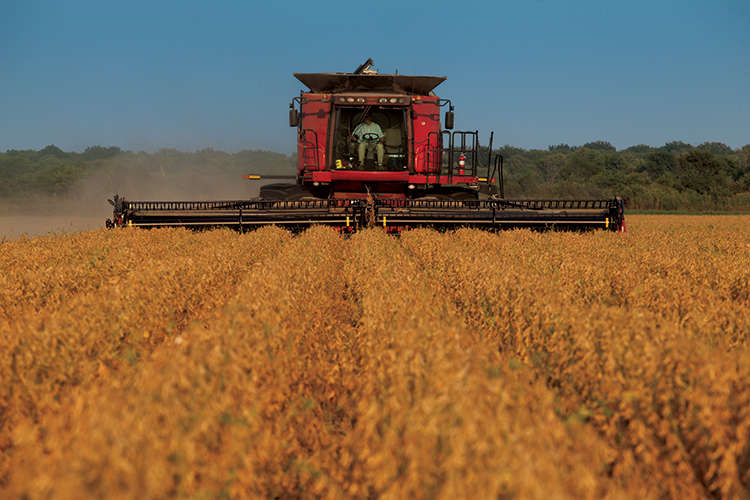Home > Tennessee > Tennessee Technology > Tennessee Farmers, Producers Embrace Innovation
Tennessee Farmers, Producers Embrace Innovation
In partnership with: Tennessee Department of Agriculture

Tennessee farming is far from the mule and plow stereotype of the past. Staying attuned to the technological times, embracing sustainability and innovation in an ever-changing industry is how agriculture and forestry have remained vital sectors in the Volunteer State, contributing approximately $74.8 billion to Tennessee’s economy each year.
With just over 67,300 farms spread across 9 million acres of land and $4.28 billion in cash receipts, Tennessee contains many prosperous traditional farming operations. But the state is also a hotbed of agricultural innovation and entrepreneurship.
Seeing the opportunity to expand on resources already available in the town, historic Jonesborough is celebrating the two-year anniversary of the Boone Street Farmers Market in 2016, which was born out of a redevelopment project that converted an old building into a year-round farmers market.
Several farmers across the state are executing innovative growing methods, such as hydroponics and indoor farming to combat food insecurity and grow crops sustainably.
Tennessee’s female farmers are taking charge, creating a huge impact on agriculture and beyond. According to the 2012 Census of Agriculture, nearly 7,700 women were principal farm operators. And the state works harder than ever to support agricultural youth programs like 4-H and FFA to ensure a strong future for the industry.
The Pick Tennessee Products program is celebrating its 30th year in 2016, marked by significant growth. The program is just one service, along with others in the Tennessee Department of Agriculture and University of Tennessee Extension, using mobile applications and social media platforms – such as Facebook, Twitter and YouTube – to spread agricultural awareness and help consumers easily gain access to information.
These examples are just the tip of the iceberg as to how Tennessee is embracing and adapting to change while continuing to preserve the state’s important agricultural past.

Food Safety at Your Fingertips
Want to make sure your favorite restaurant is serving safe food? There’s an app for that.
The Tennessee Department of Health, with support from the Tennessee Department of Agriculture, has developed a new mobile app allowing users to check the inspection score for any restaurant within the state. With a quick finger tap, users can find health inspection scores for any operation that prepares food, including restaurants, as well as grocery stores, convenience markets and kitchens for hotels, hospitals, schools and food trucks.
The free app is available for iPhone and Android, and uses GPS to bring up a map of the user’s location, listing food services in that area. Download the app here or search for the app using “Tennessee Restaurant Inspection Scores” in the Apple App Store and Google Play store.
Book Fair
Thanks to the Tennessee Valley Fair, children of all ages have the opportunity to learn more about the state’s agriculture through the summer reading program.
Celebrating its 9th year in 2016, Knoxville-area libraries offer interactive storytelling and activities, advocating for agriculture and literacy.
All events are free, and participating children will also receive a ticket to the fair, scheduled for Sept. 9-18.
Visit tnvalleyfair.org for more information on library locations and fair events.

Small Farms, Big Impact
Each year, Tennessee State University’s (TSU) College of Agriculture, Human and Natural Sciences in Nashville hosts more than 400 farmers and agricultural experts at the Tennessee Small Farms Expo.
The event aims to highlight Tennessee’s agricultural diversity and includes demonstrations and farm tours from area high school students. Visitors can also see the latest in farm equipment, farming techniques, and products and produce available. TSU Extension agents are on hand to showcase the impact of their activities throughout the state.
At the end of the event, the Expo recognizes the state’s top four farmers and presents the Farmer of the Year award.

Connected Tennessee
With today’s technology constantly changing, it’s important for Tennessee farmers and producers to be on top of the latest innovations.
Connected Tennessee, a public-private partnership, works to bridge the gap between rural communities in the state and access to broadband Internet and related technologies.
Connected Tennessee was formed in 2007, and in 2010, the Recovery Act helped fund five broadband infrastructure projects to bring improved access to rural areas of the state. Citing the importance of improved Internet service, the projects gave the areas tools to expand economic, health care, educational and public safety services. Since then, availability to broadband at 3 Mbps download/768 Kbps upload for rural Tennessee communities has increased, from 87.61 percent in 2011 to 88.54 percent in 2014.
And in 2015, “advanced broadband” was defined as 25 Mbps download/3 Mbps upload. Though a high percentage of Tennessee households have access to this speed, 422,440 still have broadband below this benchmark, most of which are in rural Tennessee, hindering some of agriculture’s latest technological advances.
Learn more about how Internet in Tennessee and agriculture are working together at connectedtn.org.
![Tennessee land [INFOGRAPHIC]](https://eadn-wc01-4177395.nxedge.io/wp-content/uploads/2020/08/Screen-Shot-2016-03-14-at-3.42.20-PM.jpg)



